Big Bang Theory
The Big Bang Theory is the prevailing cosmological model for the observable universe from the earliest known periods through its subsequent large-scale evolution. It suggests that the universe was once extremely hot and dense before expanding rapidly about 13.8 billion years ago. As the universe expanded, it cooled and matter formed. Over time, the universe continued to expand and galaxies, stars, and planets formed.
Key Concepts
- Origins of the Universe: The Big Bang Theory proposes that the universe began as a singularity, a point of infinite density and temperature. The universe then rapidly expanded and continues to expand to this day.
- Cosmic Microwave Background Radiation: One of the key pieces of evidence supporting the Big Bang Theory is the existence of cosmic microwave background radiation, which is the afterglow of the Big Bang and is visible in all directions of the universe.
- Formation of Elements: The Big Bang Theory also explains the formation of the light elements such as hydrogen and helium in the early universe, which later became the building blocks for stars and galaxies.
- Expansion of the Universe: Observations of distant galaxies and the redshift of their light support the idea that the universe is expanding, consistent with the predictions of the Big Bang Theory.
- Age of the Universe: By studying the expansion rate of the universe, scientists have estimated the age of the universe to be approximately 13.8 billion years, in line with the predictions of the Big Bang Theory.
Study Guide
Here are some key points to focus on when studying the Big Bang Theory:
- Describe the concept of a singularity and its role in the Big Bang Theory.
- Explain the significance of cosmic microwave background radiation as evidence for the Big Bang Theory.
- Outline the sequence of events in the early universe, from the initial expansion to the formation of elements.
- Discuss the evidence for the expansion of the universe and how it supports the Big Bang Theory.
- Calculate the age of the universe based on the observed expansion rate and compare it to the estimated age predicted by the Big Bang Theory.
By understanding these key concepts and study guide points, you can gain a solid grasp of the Big Bang Theory and its implications for our understanding of the universe.
.◂Science Worksheets and Study Guides Fifth Grade. Flowers and seeds
Study Guide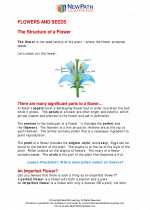 Flowers and seeds
Flowers and seeds  Activity Lesson
Activity Lesson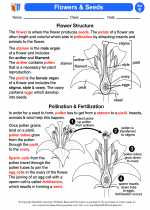 Flowers & Seeds
Flowers & Seeds  Worksheet/Answer key
Worksheet/Answer key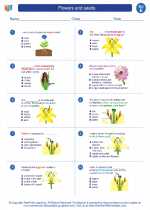 Flowers and seeds
Flowers and seeds  Worksheet/Answer key
Worksheet/Answer key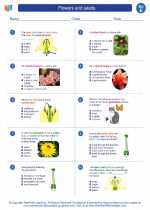 Flowers and seeds
Flowers and seeds  Worksheet/Answer key
Worksheet/Answer key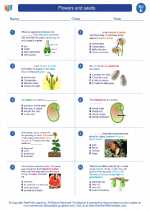 Flowers and seeds
Flowers and seeds  Worksheet/Answer key
Worksheet/Answer key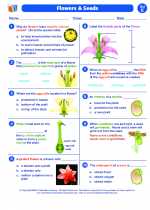 Flowers and seeds
Flowers and seeds  Vocabulary/Answer key
Vocabulary/Answer key Flowers and seeds
Flowers and seeds  Vocabulary/Answer key
Vocabulary/Answer key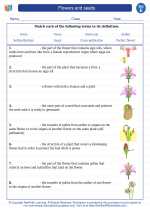 Flowers and seeds
Flowers and seeds 

 Activity Lesson
Activity Lesson
 Worksheet/Answer key
Worksheet/Answer key
 Worksheet/Answer key
Worksheet/Answer key
 Worksheet/Answer key
Worksheet/Answer key
 Worksheet/Answer key
Worksheet/Answer key
 Vocabulary/Answer key
Vocabulary/Answer key
 Vocabulary/Answer key
Vocabulary/Answer key

The resources above cover the following skills:
Life Science
All organisms have structures and systems with separate functions. Students can:
Develop and communicate an evidence-based scientific explanation of the role of different organs or structures that are important for an organism's survival - in both plants and animals